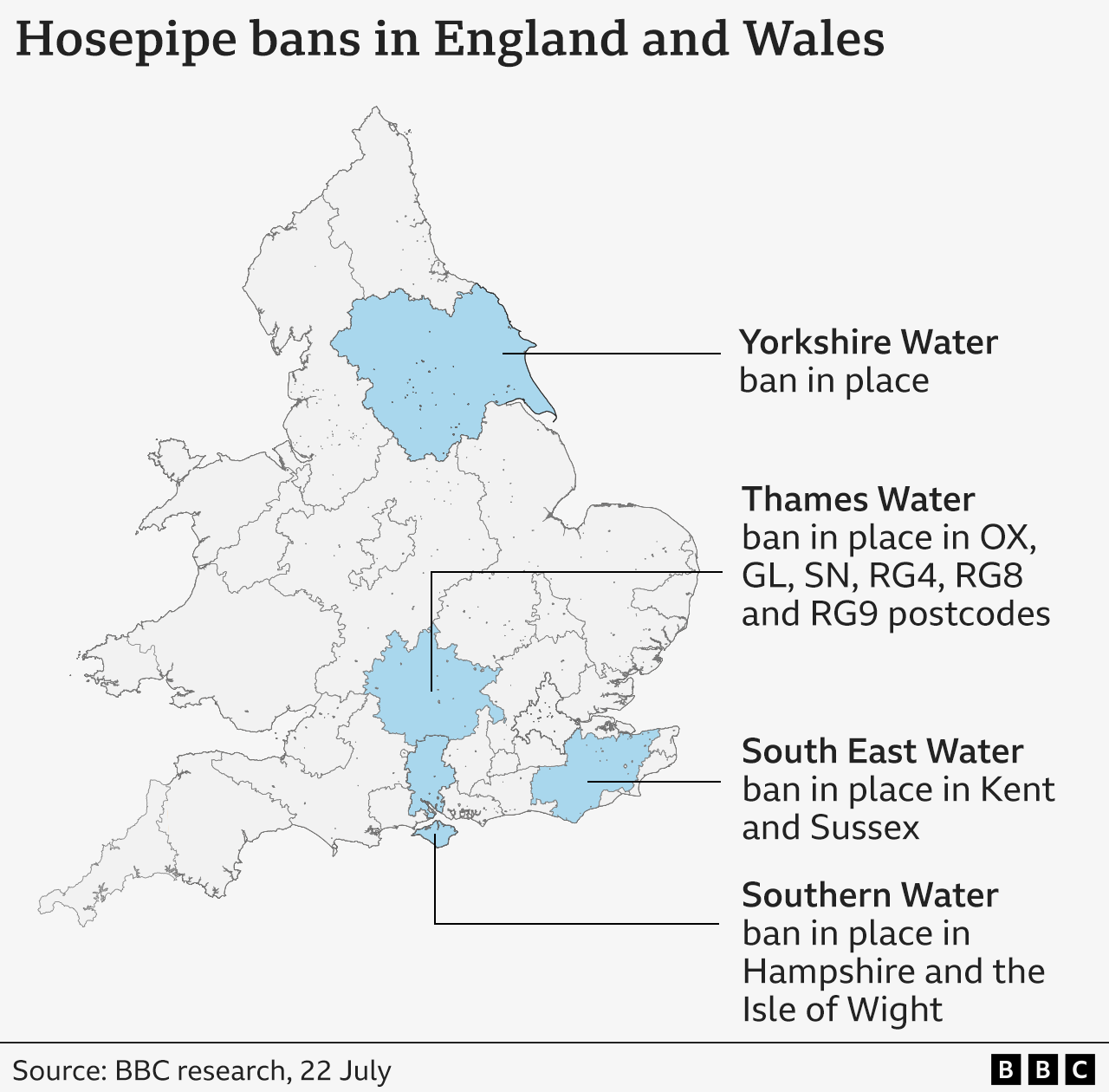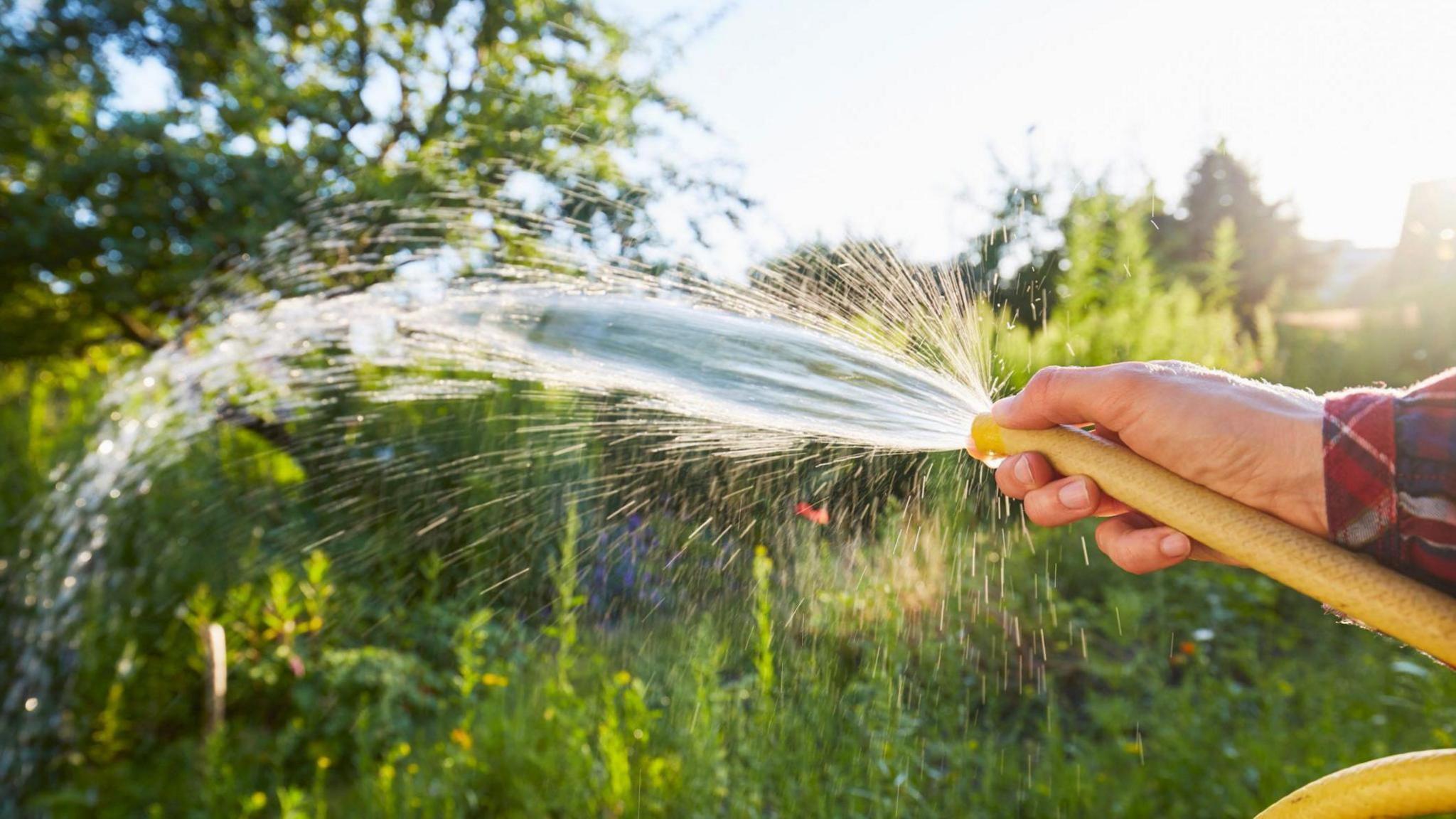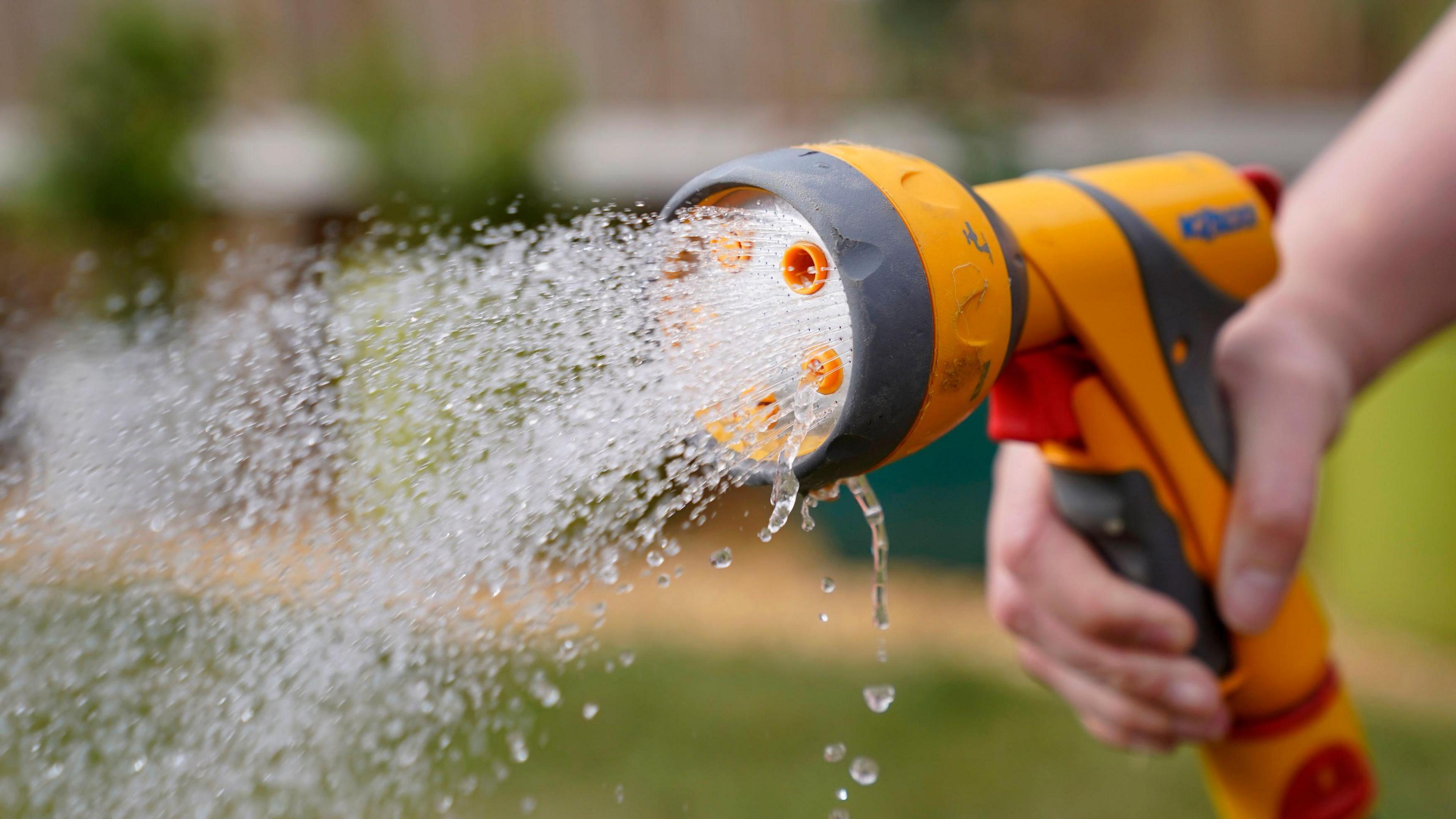Thames Water hosepipe ban comes into force

The ban has come into force for residents in parts of Gloucestershire, Oxfordshire, Berkshire and Wiltshire
- Published
A hosepipe ban for almost 1.1 million people in Gloucestershire, Oxfordshire, Berkshire and Wiltshire has come into force.
Thames Water announced the restriction last week due to a lack of rain and increasing demand, which it said had stretched supplies.
It bans the use of a hosepipe for activities such as watering the garden, washing the car or filling a paddling pool. People found to be using a hosepipe during a ban can be fined up to £1,000.
The temporary restrictions, which came into effect at midnight, cover areas with postcodes beginning with OX, GL, SN, RG4, RG8 and RG9.
It follows bans from Yorkshire Water, Southern Water and South East Water.
The postcode areas affected are those which are supplied water from Farmoor Reservoir near Oxford which is fed by the River Thames.

Announcing the restrictions last week, Nevil Muncaster, Thames Water's strategic water resources director said: "This has been a challenging spring and summer with big spikes in customer demand during hot dry days and very little rainfall to replenish local supplies in the Thames Valley.
"Every drop of water we use comes from the environment and we have to balance protecting this while taking out the water needed to top-up reservoir levels.
"That is why we have had to make to the difficult decision to implement a hosepipe ban to make sure there's enough water for customers' essential needs and to protect rivers."
Customers on the company's Priority Services Register with medical or mobility needs, Blue Badge holders and those on the WaterSure tariff, are excluded from the ban.
The Temporary Use Ban lays out details as to when water customers are allowed to use a hosepipe.
Prof Liz Stephens, Professor of Climate Risks and Resilience, University of Reading, said: "The flow in the River Thames is currently very low, and this is set to continue with low groundwater levels upstream and no significant rainfall in sight."
"This hosepipe ban is coming into place a whole month earlier in the year than the most recent hosepipe ban in 2022, and as a result the impact on individuals may be more profound, especially if we experience further heat waves during the rest of the summer."
BBC South Environment Correspondent Jon Cuthill answers questions on the hosepipe ban
The GMB union previously criticised the restriction.
National officer Gary Carter said union members working for the utility company had "their hands tied" by "crumbling infrastructure and non-existent investment".
"For Thames Water to now impose a hosepipe [ban], while bills rocket, is disgraceful," he said.
Wessex Water, which also supplies parts of Wiltshire said there was "still no need" for a hosepipe ban in its areas as it draws water from groundwater sources.
The hosepipe bans coincide with the release of a long-anticipated report calling for for big changes to the water industry in England and Wales and the government's announcement that Ofwat, the economic regulator would be scrapped.
Get in touch
Do you have a story BBC Hampshire & Isle of Wight should cover?
Related topics
- Published18 July

- Published16 July

- Published14 July

- Published21 July
